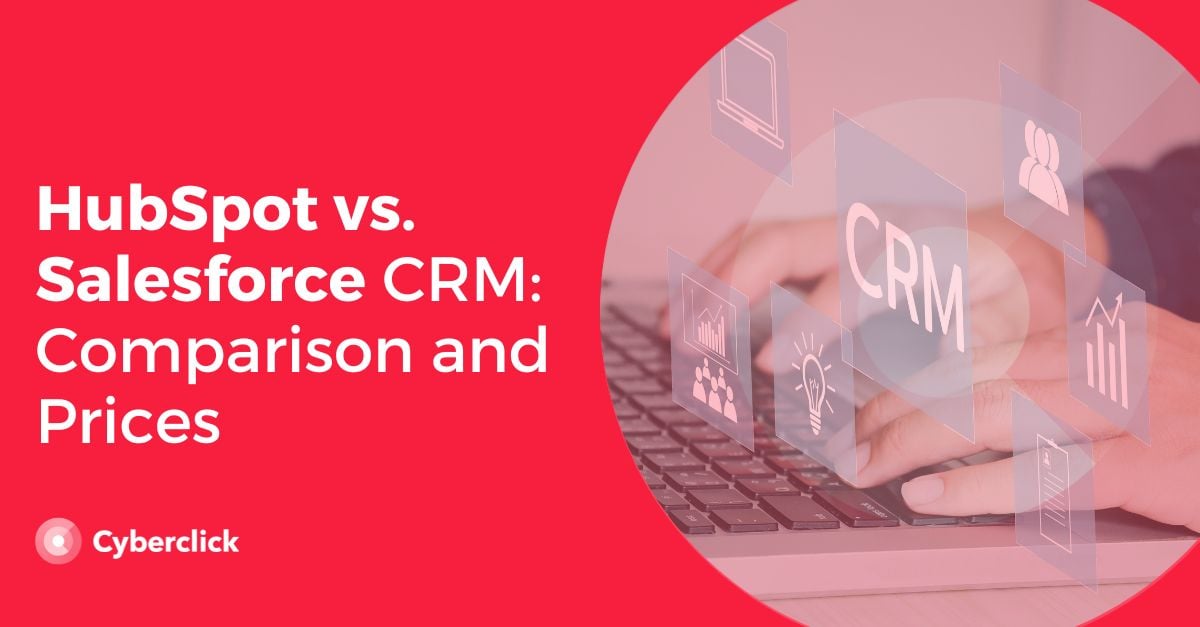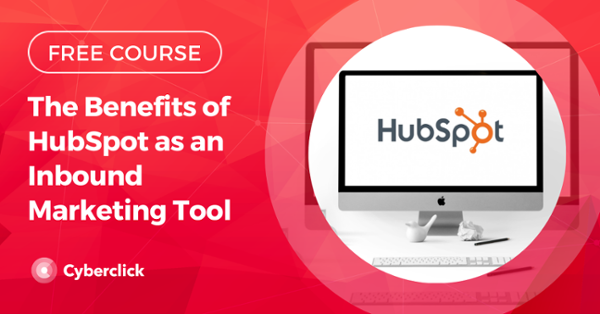HubSpot and Salesforce are two of the best CRM platforms in marketing today. If you are looking to implement a CRM system for your business, you might be wondering if you should go with HubSpot vs. Salesforce. We're here to help you choose the best one for your needs. Let's take a look at these two solutions and review their features, and pricing.


Salesforce vs. HubSpot
What HubSpot Does
HubSpot is a cloud CRM that helps businesses grow with sales, service, marketing and content marketing management software. Your teams can work centrally with data, helping them build deeper customer relationships and deliver a world-class customer experience for clients.
HubSpot's all-in-one CRM platform includes HubSpot Sales Hub, with custom objects, sales software, configuration tools, pricing, quoting, and sales statistics.
It also provides:
- Social media integration (Facebook, Twitter, LinkedIn, and Instagram) to connect customer activity on these platforms with the database
- Drag-and-drop email editor
- Workflow automation to send emails and update documents based on specific rules or criteria that trigger actions.
- Intuitive dashboard to track leads, sales and customer interactions.
HubSpot is an ideal solution for companies with limited budgets, as its core features (such as its basic version of the CRM) can be used for free. In addition, maintenance is somewhat easier than with Salesforce.
As your company grows, HubSpot also offers many more advanced modules and features to scale marketing efforts.
What Salesforce Does
Salesforce is a cloud CRM that optimizes the interaction between companies and customers. It includes applications for sales, services, marketing, and more.
Sales Cloud is a comprehensive sales CRM that makes it easy to manage leads, monitor progress, and automate sales processes. It includes automation tools, reporting, business management, and much more.
It provides the following functions:
- Sales opportunity management: This functionality allows sales personnel to observe the timeline of customer activities in the sales process.
- Email integration with Microsoft and Google.
- Pre-designed email templates to save teams time and ensure that messages are consistent across all customer interactions.
- Einstein Analytics: business intelligence functionality that provides relevant information on complex sales figures.
In terms of use cases, Salesforce is best suited for medium to large companies, as smaller companies may not be able to take advantage of its advanced features. Some companies have entire teams of Salesforce administrators tasked with managing Salesforce.
Although the technical complexity is greater, these advanced features make it possible to manage large volumes of data and campaigns, covering areas such as marketing, sales and customer service.
Price Comparison: HubSpot vs. Salesforce
HubSpot Prices
HubSpot's recommended pricing includes all necessary features and offers free accounts for team members who need access to reports but do not need to use the sales tool features. Instead, you need to pay for additional revenue-generating users.
To better see the pricing scheme, here are the costs for Sales Hub Enterprise for a team of 50 people:
- Selling price: $6000 per month.
- License pricing: $120 per month for each additional paying user.
- Implementation: flat fee of $3000 for Enterprise onboarding. Other technical consulting services are available for an additional fee.
- Platform maintenance: since HubSpot is built on a single paid basis, they claim that no additional maintenance is required.
- Calling: included in all packages; up to 2,000 minutes per user per month in Enterprise. Not available for all countries.
- Sales interaction software: Enterprise includes team email, conversation inbox, HubSpot Video, email sequences, tasks and call series, how-to guides, documents and templates, mobile app integration, and more.
- Conversation analysis and call training software: Enterprise includes 1500 hours of transcription per account per month and allows you to purchase additional capacity.
-
Customer support: Phone and email support are included with Enterprise.
Salesforce Prices
Salesforce charges per user and has additional fees for features such as aligning marketing and sales teams, accessing reports, or having a shared inbox. Here is the detailed pricing for Sales Cloud Enterprise for a team of 50 users:
- Selling price: $7500 per month.
- License prices: $25 to $150 per month for each additional user depending on the package.
- Implementation: Salesforce offers the Jump Start program at $5000.
- Platform maintenance: Salesforce integrates multiple cloud services, so may require additional man-hours for setup. The price is $5,000 for 20 hours of work.
- Calling tool: calls and registration cost $40 per user per month with a total of 1000 minutes.
- Sales interaction software: Salesforce inbox functionality is priced at $25 per user per month
- Engage is $50 per user per month and High Velocity Sales is $75 per user per month.
- Conversation analysis and call coaching software: High Velocity Sales includes sequences, call series, and Einstein Call Coaching.
- Customer Support: 20% of the net price for telephone support and 24-hour coverage, 30% of the net price for access to all other features, and an additional 5% to contact a U.S.-based support center.

Inbound Marketing & Content Strategist en Cyberclick. Experta en marketing online, gestión de contenidos, estrategia en redes sociales, y creación y optimización de campañas en social ads.
Inbound Marketing & Content Strategist at Cyberclick. Expert in online marketing, content management, social media strategy, and creation and optimization of campaigns in social ads.

.jpg)


Leave your comment and join the conversation